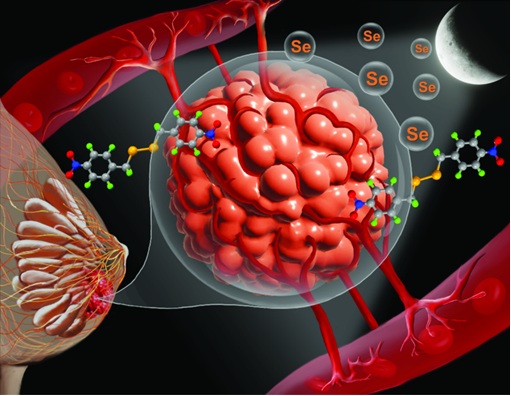Indian researchers have designed a new nitro-substituted organoselenium compound that shows promise in reducing the invasiveness of aggressive triple-negative breast cancer cells by modulating multiple signalling pathways.
The study was jointly carried out by Dr. Asis Bala at the Institute of Advanced Study in Science and Technology (IASST), an autonomous institute under the Department of Science and Technology, and Dr. Krishna P. Bhabak of IIT Guwahati. The compound, identified as 4-nitro-substituted benzylic diselenide (diselenide 7), was synthesised through nucleophilic substitution of benzylic halides with selenium derivatives under controlled conditions.
In laboratory studies, the compound was found to significantly reduce tumour volume, angiogenesis, and metastasis in Swiss albino mice with breast adenocarcinoma, leading to an extended lifespan.
Researchers observed that the compound targets multiple survival mechanisms in cancer cells. It blocks the Akt/mTOR and ERK pathways, which are critical for cancer cell growth, generates reactive oxygen species, and reduces inflammation. These combined effects damage cancer cell DNA and trigger cell death.
According to the team, this discovery underscores the potential of nitro-substituted organoselenium compounds as multitargeting anticancer agents and opens new possibilities for developing effective treatments for aggressive forms of breast cancer.














